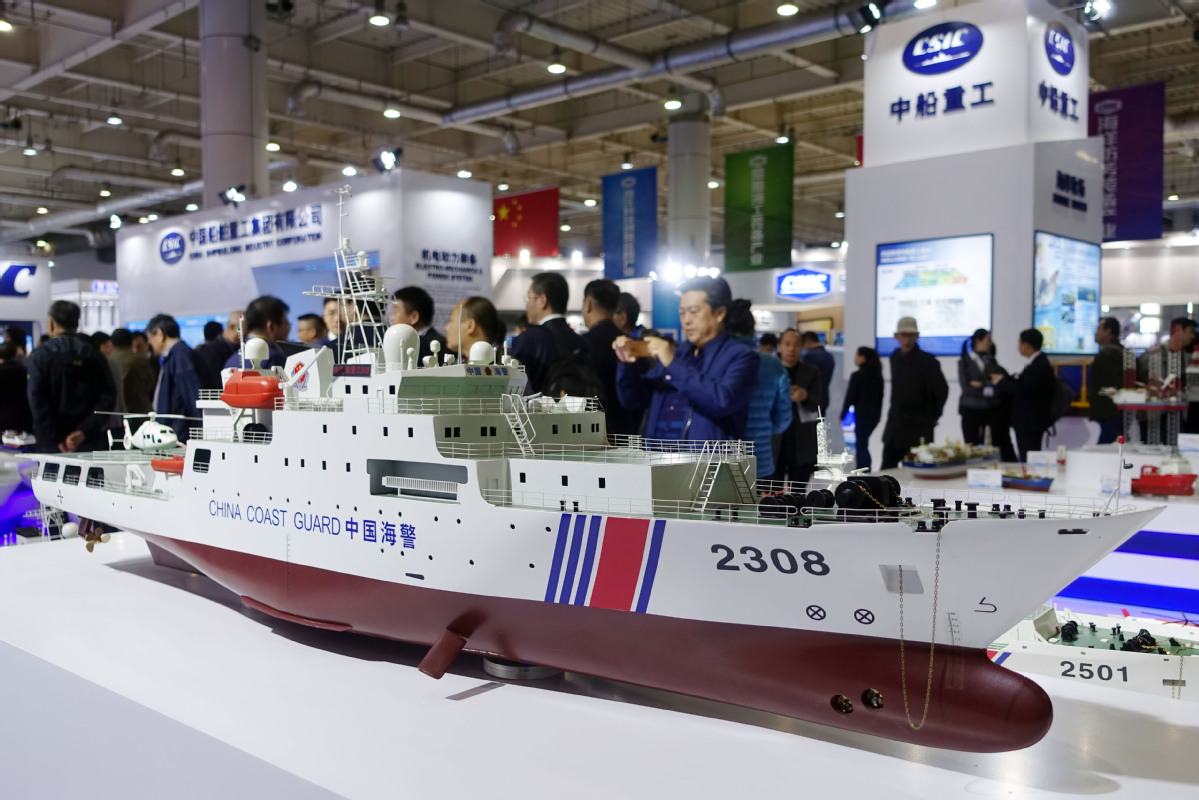Two shipbuilders mull merger


Move will enhance CSSC, CSIC's global competitiveness, earnings prospects
The possible merger of China State Shipbuilding Corp (CSSC) and China Shipbuilding Industry Corp (CSIC), the country's two biggest State-owned shipbuilders by production capacity, will allow them to compete against established rivals in South Korea and Europe, industry experts said on Tuesday.
The listed companies announced in stock exchange filings late on Monday the two shipbuilding groups are planning a strategic restructuring, but they said the plan needs to be approved by the relevant authorities.
Dong Liwan, a professor of shipbuilding at the Shanghai Maritime University, said the merger will bring advantages for the country to enhance its global competitiveness because Chinese players want to complete on the global stage, especially in the area of military vessels, liquefied natural gas carriers, luxury cruise liners, icebreakers, and offshore engineering equipment among others.
"It's time for capable Chinese shipyards to make complex, high value-added vessels to reach buyers in new segments through asset restructure, international collaboration and research and development activities," said Tan Naifen, deputy secretary-general of the China Association of the National Shipbuilding Industry.
If the merger goes through, the two Chinese shipbuilding groups will have more sales volume than their South Korean competitors, as well as other shipbuilding conglomerates across the world, Tan added.
South Korean shipbuilders such as Hyundai Heavy Industries Co and Samsung Heavy Industries Co gained 86 percent of the world's total orders for LNG carriers in 2018.
The merger will give the new Chinese group the scale to match Hyundai Heavy Industries' proposed acquisition of Daewoo Shipbuilding and Marine Engineering Co Ltd, Dong said.
The merger is a solid move to strengthen the earning ability of the State-owned enterprise sector, many of whom have been affected by overcapacity and limited market channels, such as those in steel, shipping and construction material industries, said Zhou Lisha, a researcher at the research institute of the State-owned Assets Supervision and Administration Commission.
China's shipbuilding business must move from quantity to quality, as the industry has become more intelligent, digitalized and environmentally friendly, she said.
Both groups were founded in 1999.
CSIC's major shipyards are located in Dalian, Qingdao and Wuchang, along with a large number of associated suppliers and research labs. Its sales revenue amounted to 305 billion yuan ($44.5 billion) in 2018, with profit of 6.9 billion yuan. It currently manages five listed companies.
CSSC's core assets include the Shanghai Waigaoqiao Shipbuilding Co Ltd, Jiangnan Shipyard (Group) Co and Hudong-Zhonghua Shipbuilding (Group) Co and the Longxue shipbuilding base in Guangzhou. It had annual sales of 114.4 billion yuan in 2018, with 2.4 billion yuan in profit. The group to date has three listed companies.
In addition to constructing conventional ships such as bulk vessels, container ships and oil tankers, both CSSC and CSIC have already begun to deploy more financial resources in developing ships such as mega-container vessels, LNG carriers, hospital ships, semi-submerged ships and ocean farms, as well as dual fuel ships and gas-fueled ships with the latest wind-power technologies.



































